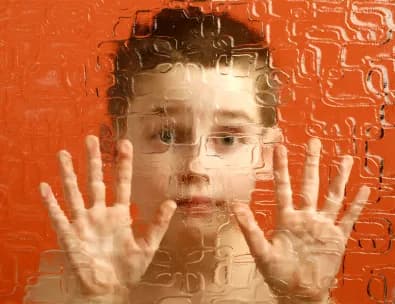
Grandma Knows Best: New Research Explains How Family Members Can Impact An Autism Diagnosis
Children who have older siblings or frequent interaction with grandparents are diagnosed with autism spectrum disorders (ASD) earlier than those who do not, according to new research conducted at The Seaver Autism Center for Research and Treatment at Mount Sinai, and published in the journal Autism. This study is the first to ask not only parents, but also friends and family members who had contact with the child, about their early observations of the child.
Study results show that approximately 50 percent of friends and family members reported that they had suspected a child to have a serious condition before they were aware that either parent was concerned. Maternal grandmothers and teachers were the two most common relationship categories to first raise concerns.
"About half of the family and friends who reported being concerned about a child were reluctant to share their concerns," says Joseph D. Buxbaum, PhD, Director of The Seaver Autism Center for Research and Treatment at Mount Sinai and co-author of the paper. "Our work shows the important role that family members and friends can play in the timing of a child's initial diagnosis of autism. Since early detection of ASD is critical to effective treatment interventions, we hope the study will serve as a call-to-action to encourage family and friends to share concerns early on."
Study researchers conducted an online survey of 477 parents of children with autism. In addition, they carried out novel, follow-up surveys with 196 "friends and family," who were referred by parents. Their findings indicated that family structure and frequency of interactions with family members had significant effects on age of diagnosis. Specifically, they found that frequent interaction with a grandmother reduced the age of ASD diagnosis by 5.18 months, and frequent interaction with a grandfather reduced the age of diagnosis by 3.78 months.
Previous research has found that parents' behavior affects the age of diagnosis, but a major finding of this study is that individuals other than parents play a key role in recognizing that there is a problem.
"Many parents avoid seeking help to find a diagnosis for their child, even though they know something might be wrong," says study co-author Nachum Sicherman, PhD, Carson Family Professor of Business at Columbia Business School. "They often ignore signs of a larger problem and look the other way, making the role of close family members and friends vital to accelerating diagnosis and helping a child's condition."
While interactions with grandparents and friends played an important role, family structure also impacted the age of diagnosis. Children with no siblings were diagnosed 6 to 8 months earlier than children with siblings. Among children with siblings, children with older siblings were diagnosed approximately 10 months earlier than those without older siblings, suggesting that older siblings may serve as a reference point, helping parents calibrate whether younger siblings are on target developmentally.
The study findings suggest that there are opportunities to achieve an earlier diagnosis by tapping into the feedback and wisdom of family, friends, and caregivers who have exposure to children in a family.
Related Articles
Test Your Knowledge
Asked by users
Related Centers
Related Specialties
Related Physicians
Related Procedures
Related Resources
Join DoveHubs
and connect with fellow professionals

0 Comments
Please log in to post a comment.